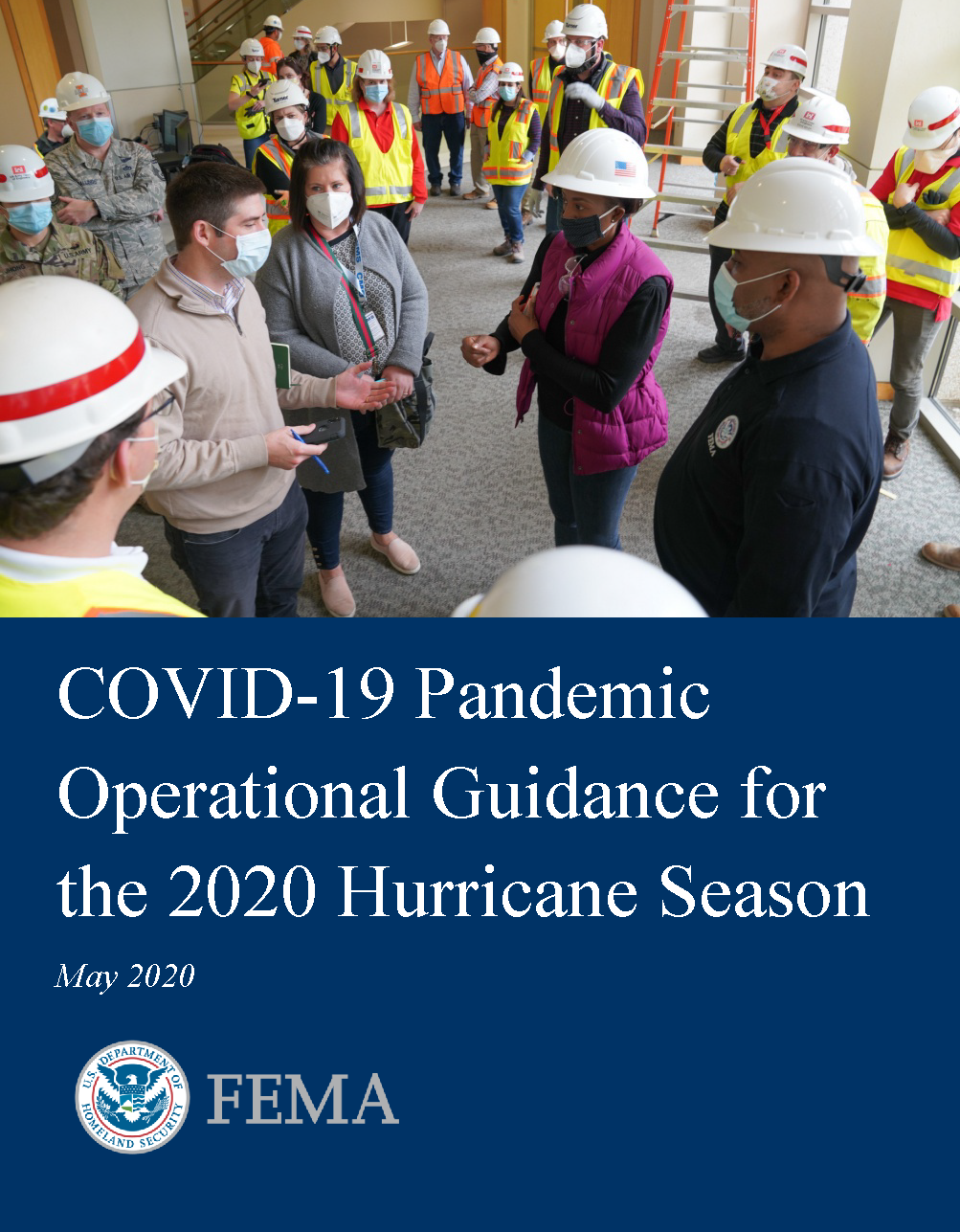
COVID-19 Pandemic Operational Guidance for the 2020 Hurricane Season
In preparing for the 2020 hurricane season, this document provides actionable guidance to State, Local, Tribal & Territorial officials to prepare for response and recovery operations and encourages personal preparedness measures amidst the ongoing COVID-19 pandemic. While this document focuses on hurricane season preparedness, most planning considerations can also be applied to any disaster operation in the COVID-19 environment, including no-notice incidents, spring flooding and wildfire seasons, and typhoon response.
Adaptions at all levels of emergency management deployments exist in a COVID-19 environment especially when it comes to disaster emergency communications. Learn about preparation, response and recovery practices. Tips on funding sources for operational readiness, use of non-congregate shelters during hurricane season. IP Access invites conversations with public safety stakeholders who wish to discuss technologies that address these adaptations. Tap image to view guide.
To address the challenges of managing disaster response and recovery efforts during this year’s hurricane season, FEMA has released the “COVID-19 Pandemic Operational Guidance for the 2020 Hurricane Season” to help emergency managers and public health officials best prepare for disasters, while continuing to respond to and recover from coronavirus (COVID-19). The guidance can also be used by private sector and non-governmental organizations to gain an understanding of the government’s posture, planning and readiness efforts.
This guide provides actions emergency managers and public officials can take to prepare for response and recovery operations during ongoing COVID-19 pandemic response efforts. Specifically, the guidance:
- Describes anticipated challenges to disaster operations posed by COVID-19;
- Highlights planning considerations for emergency managers based on current challenges;
- Outlines how FEMA plans to adapt response and recovery operations;
- Creates a shared understanding of expectations between FEMA and emergency mangers; and,
- Includes guidance, checklists and resources to support emergency managers response and recovery planning.
Although some aspects of FEMA’s program delivery are different this year, others remain the same. FEMA does not anticipate major changes in program eligibility, timeliness of grant awards, or level of assistance provided under the Individual and Households Program.
While the guide focuses on FEMA’s program delivery during the 2020 hurricane season, most planning considerations can be applied to any disaster operation during the COVID-19 pandemic, including no-notice incidents.
FEMA will continue to operate under the framework of locally executed, state managed, and federal supported incident response. By creating a shared understanding of expectations among FEMA and state, local, tribal and territorial partners prior to hurricane season, the nation will be better positioned to achieve operational outcomes in disaster response and recovery efforts.